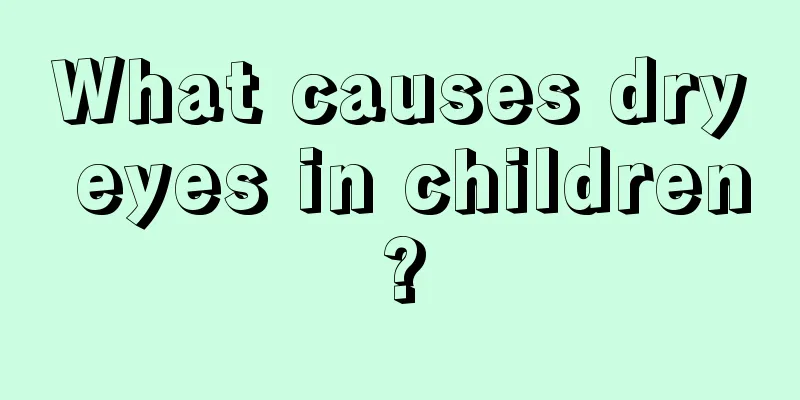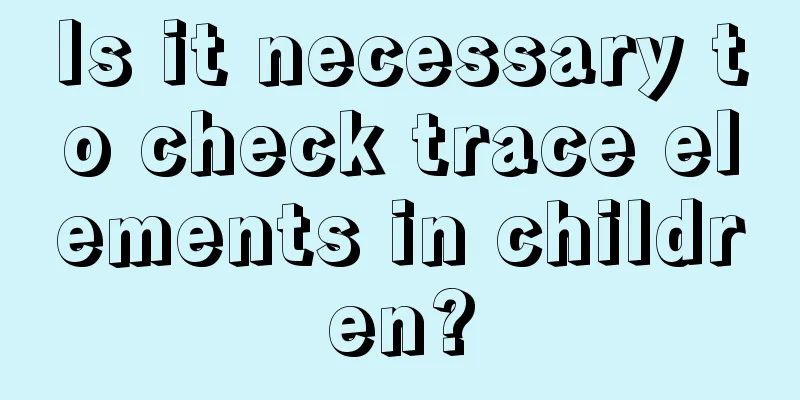The difference between low blood calcium and calcium deficiency in babies

|
If the baby has some physical problems in daily life, parents will be more worried. For example, if the baby is calcium deficient, which is also a common symptom. If the calcium deficiency is more serious, it will easily lead to poor bone development of the child, affect the child's growth, and even cause rickets. Calcium deficiency and hypocalcemia in babies are different. Let’s take a look. The difference between low blood calcium and calcium deficiency in babies 1. Blood calcium level is lower than normal Children will be particularly easily frightened and their nervous excitability will increase, which is related to low blood calcium levels. Children who sweat a lot while sleeping at night will become hyperactive. Due to the need for rapid bone growth, they will suffer from relatively low blood calcium, which should be discovered and supplemented early. What happens when the blood calcium level is lower than normal, or lower than normal? The child will be extremely easily startled, his nervous excitability will increase, and the child will be very, very easily startled. That is to say, sometimes when we close the door, a child who should be sleeping soundly may be startled and make a sudden movement in bed. We believe that this is an increase in nerve excitability, and the increase in muscle nerve excitability is related to low blood calcium levels. The related symptoms of this group are excessive sweating, which means sweating all over the body when sleeping at night. Then the child will develop baldness on the pillow of the head due to frequent touching of the head due to sweating. 2. What is calcium deficiency? Medically speaking, calcium deficiency mostly refers to reduced intestinal calcium and phosphorus absorption due to vitamin D deficiency, resulting in insufficient calcium and phosphorus concentrations in the blood, leading to symptoms of rickets. Most cases of convulsions caused by rickets are accompanied by hypocalcemia. Hypocalcemia refers to the free calcium ions in the blood being lower than the normal range. It is often caused by diarrhea, vomiting, acidosis, fever, hunger, infection, abnormal calcitonin secretion, etc. Rickets is caused by vitamin D deficiency, and the symptoms are different in different age groups. Early symptoms occur within six months, and the symptoms include irritability, restlessness, restless sleep, night startles, sweating, and bald spots on the back of the head. However, it cannot be said that babies with bald spots on the back of the head or sweating a lot have rickets. Many one- or two-year-old babies sweat a lot or wake up easily at night, and cry, and they are diagnosed with calcium deficiency or rickets. Some babies are diagnosed with calcium deficiency or rickets as soon as they have bald spots on the back of the head. These are unscientific, because infants and young children are in the peak development period of their endocrine system, so they are prone to sweating and kicking off the quilt. After sweating, their heads itch and they are prone to shaking their heads, causing symptoms of bald spots on the back of the head. Most of them are not necessarily caused by rickets or calcium deficiency. For the same reason, the cerebral cortex is not fully developed, and some babies cry or wake up easily at night due to food accumulation or external factors. This is not necessarily calcium deficiency or rickets. |
<<: Five month old baby pillow
>>: Baby's temperature is low after fever
Recommend
Symptoms of fright in eight-month-old babies
The body of an eight-month-old baby is still rela...
Why does a child roll his eyes when sleeping?
Parents often closely observe their children'...
The child complained of chest pain
Children are very active, so sometimes they get b...
Child's snot with blood
It is common to have a runny nose when you have a...
A lump under the child's eyes
A lump under a child's eye may be caused by a...
What are the symptoms of premature puberty in babies?
Children nowadays are maturing earlier and earlie...
6 effective sensory training methods for children with autism at home
Autism may be familiar to everyone now, and the n...
What to do if your baby bumps his head and gets a bump?
Every baby is an angel sent by God. After babies ...
What is the reason for yellow teeth in babies?
What is the reason for the baby's teeth to be...
Allergic rhinitis in children
With the continuous improvement of urbanization l...
Conservative treatment of adenoids hypertrophy in children
Adenoids hypertrophy is a disease that many peopl...
Is mycoplasma infection contagious in children? It turns out this is the case
As we all know, mycoplasma infection in children ...
Does a child with cavities need a filling?
When children are young, they all love to eat swe...
How to improve the appetite of children who don't eat
When children are growing, if their diet does not...
What to do if a one-year-old baby has repeated fever due to bacterial infection
Children getting sick is what parents worry about...









